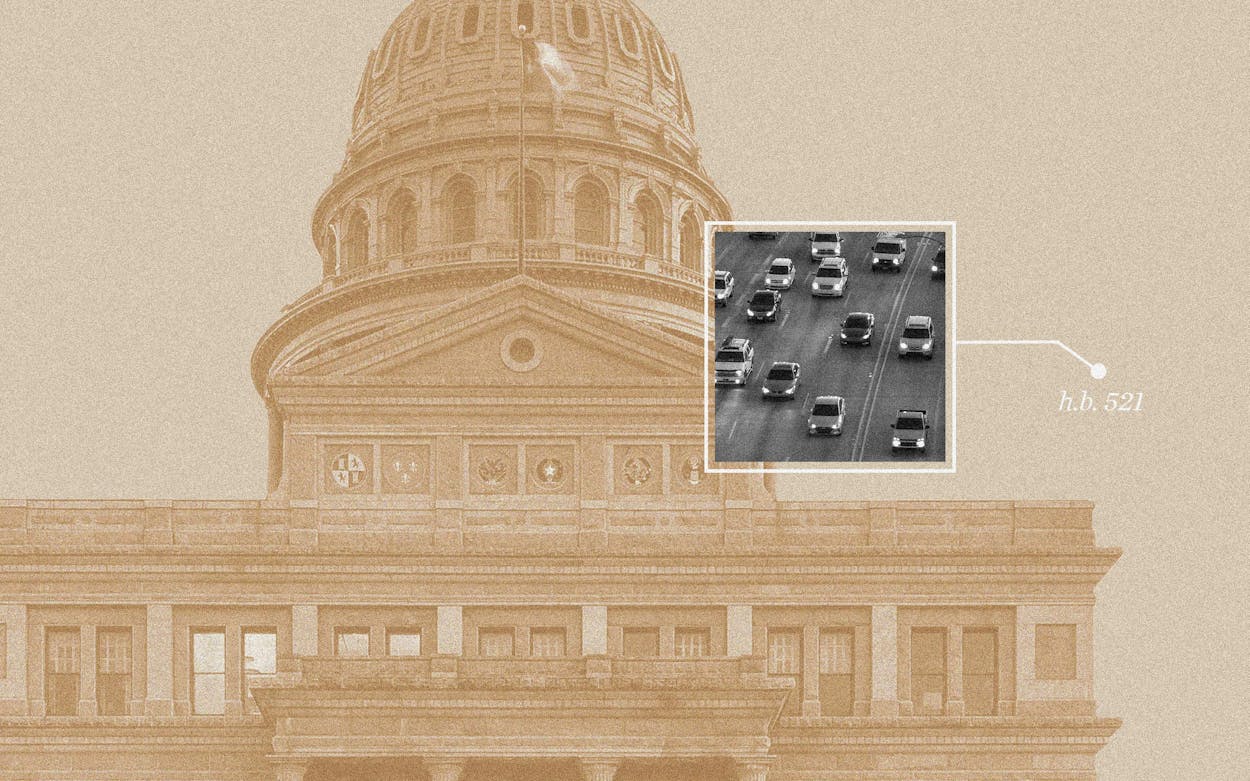The bill: House Bill 521
Filed by: Briscoe Cain, Republican, District 128 (Deer Park)
What it does: The prefiled bill would amend subchapter I, chapter 545 of the Texas Transportation Code to clarify that “an operator of a motor vehicle who is pregnant is entitled to use any high occupancy vehicle lane in this state regardless of whether the vehicle is occupied by a passenger other than the operator’s unborn child.”
Why is this a pressing issue for the Lege? Over the summer, Brandy Bottone, of Plano, made national headlines for a seemingly inconsequential act: driving in the high-occupancy vehicle lane even though all of the other seats in her car were empty. She was ticketed, and she told police that, in fact, the car did have a passenger—the 32-year-old was in her third trimester of pregnancy. Given Texas’s abortion ban, which was slated to go into effect the following month, and some specific language in Texas’s penal code that defines when life begins for the purposes of filing assault and murder charges, Bottone argued that the 34-week-old fetus in her uterus counted as a passenger. Rather than dive into the thorny question of whether, for the purposes of Texas’s transportation code, life begins at conception, a judge simply dismissed Bottone’s ticket, punting the issue to another day. (About a month after getting the ticket, Bottone received a second one for the same offense; she’s since given birth.)
It remains unclear whether Texas’s traffic laws consider a fetus that lives in a motorist’s uterus to be a passenger or not. Cain—the small-government conservative with a host of ideas for how to further restrict abortion in Texas—used the first day of bill filing to attempt to clear that up.
The legislation on its own wouldn’t guarantee fetal personhood—the language of the bill addresses the status of the driver as a lawful user of the HOV lane, not the status of the fetus as a lawful person who is riding in the car. But HB 521 is an opening salvo in a fight that could well be one of the larger to come up in the 2023 session. If Texas passes a “fetal personhood” law, as was proposed during the 2021 session, more-consequential implications would include what happens to embryos frozen as part of in vitro fertilization procedures and whether a woman who uses aspirin or other commonly prescribed drugs during pregnancy could be held liable for child abuse.
Does it have a chance of passing? Some. Not only is the bill a preview of a major culture-war battle looming over the coming session, which begins in January, but it also answers a practical question: what does Texas law say about pregnant drivers in the HOV lane? The issue has come up at least twice just this summer, so it would be useful for the Lege to weigh in here, even if the implications are quite a bit broader than just the Texas Transportation Code.
- More About:
- Politics & Policy
- Texas Legislature
- Abortion








